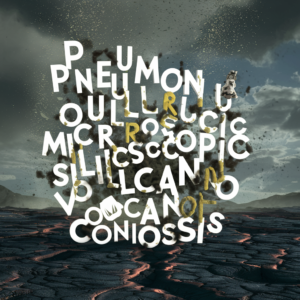Exploring the Longest Word in English: Pneumonoultramicroscopicsilicovolcanoconiosis
Introduction:
In the vast and fascinating world of the English language, some words are simple, and then there are those that are complex and tongue-twisting. One such word, often touted as the longest in the English language, is ‘pneumonoultramicroscopicsilicovolcanoconiosis.’ While its length may be intimidating, its origin and significance are equally intriguing.
What is Pneumonoultramicroscopicsilicovolcanoconiosis?
Pneumonoultramicroscopicsilicovolcanoconiosis is a term that refers to a lung disease caused by the inhalation of very fine silicate or quartz dust, commonly found in environments with volcanic activity or in certain industrial settings. The term was coined to serve as an example of the longest word in the English language and is primarily used in the context of discussing long words or linguistic curiosities.

The Longest Word in English Origin and Structure:
The word ‘pneumonoultramicroscopicsilicovolcanoconiosis’ is constructed from several Greek and Latin components:
- “Pneumono-” (related to the lungs, from Greek ‘pneumon’ meaning ‘lung’)
- “Ultra-” (beyond, from Latin ‘ultra’)
- “Micro-” (small, from Greek ‘mikros’)
- “Scop-” (view, from Greek ‘skopein’)
- “Silico-” (related to silica, from Latin ‘silex, silic-‘ meaning ‘flint, silica’)
- “Volcano-” (related to volcanoes, from Latin ‘volcanus’ meaning ‘volcano’)
- “Conio-” (related to dust, from Greek ‘konis’ meaning ‘dust’)
- “-osis” (a suffix indicating a medical condition, from Greek ‘-osis’)
These components create a word that represents a specific medical condition and is often used as an example of the extreme length to which English words can be constructed.
The Longest Word in English Usage and Recognition:
Its use as a word is recognized, but its practical application is limited for ‘pneumonoultramicroscopicsilicovolcanoconiosis’. Long words like this one are often cited in discussions, serving as fun and challenging examples of the complexity of the English language.
Conclusion:
In conclusion, the longest word in the English language, ‘pneumonoultramicroscopicsilicovolcanoconiosis,’ is a testament to the rich and diverse nature of English vocabulary. While its length may seem daunting, its origin and structure provide insight into the linguistic creativity and adaptability of the language







